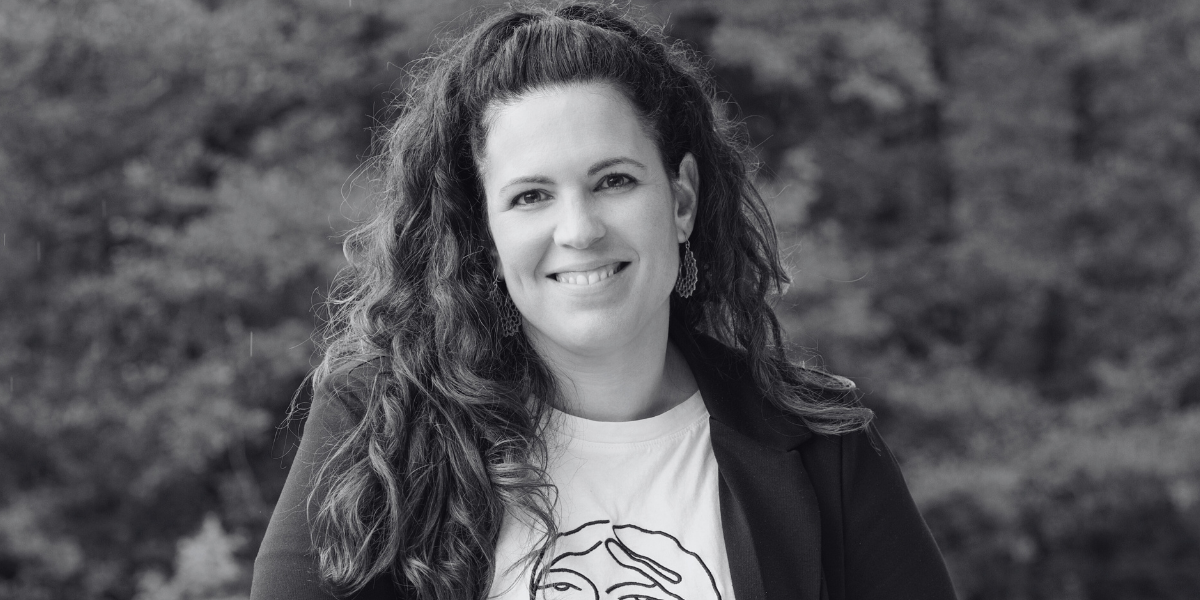This is an action-research project based on participatory methodologies, through which it is intended to help each person living in an IASS residence to develop a quality life, a chosen life, without leaving the community to which they belong and with the support and care they need.
Erkuden Aldaz

Diploma in Social Work (UPNA, 2004), degree in Psychology (EHU, 2009) and Master in "Psychology: Individual, group, organization and culture" (EHU, 2011). Her doctoral thesis deals with the identification of keys for the generation of local ecosystems of care from People Centered Care.
Her work activity has focused on projects for the promotion of technical, social and emotional resources for self-care and care of people in need of care and caregivers, leading to the design and development of training programs aimed at the elderly, family caregivers and health professionals. She has also been psychologist of the SENDIAN program of support to family caregivers of the Provincial Council of Gipuzkoa.
She is currently developing projects aimed at transforming the current model of care towards community and people-centered approaches, with special attention to the construction of caregiving municipalities or neighborhoods. She is, since 2021, Co-director of Matia Institute.
Projects
This project aims to generate an itinerary for the transformation of residential centers towards Person-Centered Care.
This project is a proposal for innovation that through training, accompaniment and research, aims to help older people living in IASS residences to develop their life project in spaces that ensure their dignity and rights, maintaining the meaning of their day to day life as they have done in thei
More and more people in Gipuzkoa are deciding to become volunteers and accompany those in need, contributing to their wellbeing.
The main objective of this project is to guide training strategies and develop training curricula for care professionals in Costa Rica, Colombia and Uruguay, from a person-centred care approach.
SEE ME is an Erasmus + KA2 project which, through the development of a model and a set of training tools, aims to improve the quality of care and social inclusion of older people.
Egiten ikasi aims to design and develop innovative and contrasted pedagogical resources, based on research and developed in co-creation processes, that favor the acquisition of attitudinal and instrumental competencies for care in the framework of ACP, to promote the advancement of this care appr
The aim of this project is the design and development of a specialisation programme called "Reference Professional in the framework of Person-Centred Care".
QAVAD is a European Erasmus + project that, from the binomial accompaniment/care and training, seeks to promote the development or maintenance of cognitive, motor and social skills, essential for the quality of life of those people who require support and wish to remain in their homes.
The need to unify the training of future professionals and the demands of the market in relation to this new way of understanding care for people (PCC) is now becoming apparent.
Traditionally different names have been used to refer to changes that occur at different ages in cognitive functioning, however, the concept of mild cognitive impairment came about in the 1990s, as defined by Petersen (2004). This concept is currently the most widely used.
Existing flexible ICT solutions could assist elderly users with cognitive impairment in organising, carrying out and completing everyday tasks and constitute essential factors for continuing to be and A1:K20 independent. IN LIFE will offer all-around, personalised, multi-faceted existing ICT solutions and services addressing diverse daily activities (eating, physical activity, commuting, mental stimulation, communication, social interaction, etc.) to users with cognitive impairment living in their own home or in sheltered homes, as well as to their formal and informal carers.
The implementation of Person-Centred Care Model (PCC Model) in gerontology centres requires intense training by the professionals involved in their care.
RAPP is a 3-year research project (2013-2016) funded by the European Commission through its FP7 programme. The RAPP project will provide an open source software platform to support the creation and delivery of robotic applications.
The ELDERBASK project, funded by the ETORTEK Programme of the Basque Government, is posed with an integrative view of technological capabilities (IK4 and TECNALIA), and geriatric are (Matia Gerontological Institute and BIOEF), and has as its ultimate goal the development of an industry and servic
